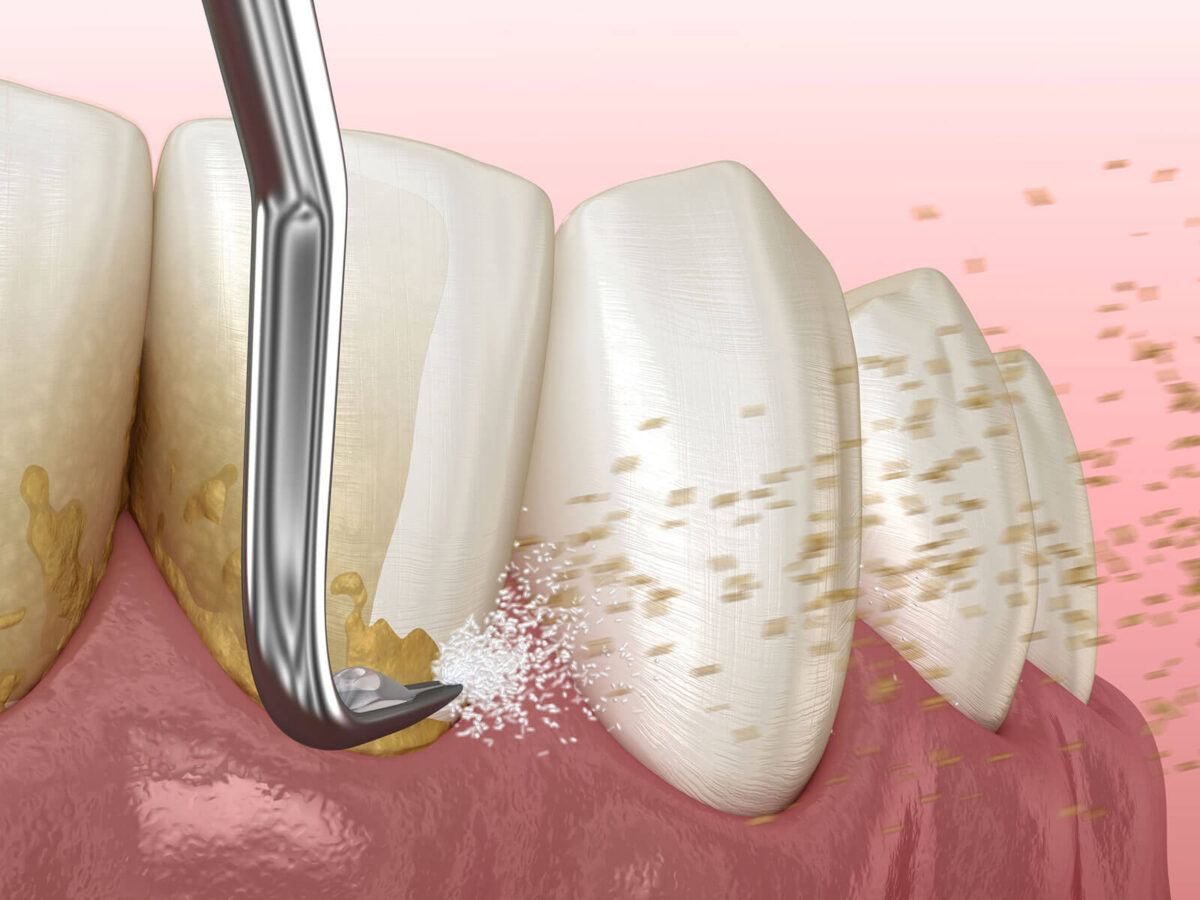Blog
Dental hygiene tips for healthy teeth & gums

The Role of Scaling And Root Planing In Overall Health
The importance of dental health goes far beyond a beautiful smile. Scaling and root planing (SRP), an essential component of comprehensive dental care, protects oral wellness and contributes to general health. This detailed guide will examine the complex interaction between scaling and root planning and the effects on oral and systemic health.
Scaling and Root Planing Explained:
Scaling and root planing is a non-surgical periodontal procedure used to treat and control periodontitis, or gum disease. Periodontitis develops when the teeth’ supporting components, including the gums and bone, become inflamed due to plaque and tartar buildup.
Scaling:
- Plaque and Tartar Removal: Scaling removes plaque and tartar from tooth surfaces, including above and below the gumline.
- Bacterial Elimination: The treatment removes dangerous bacteria that cause inflammation and gum disease.
- Planting Roots: Smoothing Tooth Roots: Root planing is the process of flattening the rough surfaces of the tooth roots to prevent plaque and tartar buildup.
- Gum Healing: A smoother root surface promotes gum healing and prevents gum disease recurrence.
The Relationship Between Oral Health and Systemic Health:
Inflammation Reduction:
- Impact on Periodontal Inflammation: Scaling and root planing effectively reduce gum inflammation, reducing periodontal disease progression.
- Reducing Systemic Inflammation: Reducing oral inflammation has been linked to reducing systemic inflammation connected with various chronic illnesses.
- Potential Cardiovascular Benefits: New research reveals a possible link between gum and heart health. SRP may benefit cardiovascular health by reducing periodontal inflammation.
Diabetes Management:
- Blood Sugar Level Management: Individuals with diabetes may experience improved blood sugar level management after receiving SRP.
- Improved Systemic Health: Gum disease care improves overall systemic health, aiding diabetes management.
Respiratory Health:
Infection Prevention: Periodontal disease has been linked to an increased risk of respiratory infections. Increasing gum health and SRP can assist in lowering this risk.
Pregnancy Impact: Reducing Pregnancy Complications:
Pregnant and Periodontal Disease: Periodontal disease has been connected to specific pregnancy problems. SRP can help to reduce these risks by promoting dental health.
Preventing Preterm Births: A Possible Link: Some research suggests that treating gum disease, particularly SRP, may contribute to a lower risk of preterm birth.
The Relationship Between Cognitive Health and Cognitive Function:
Potential Cognitive Benefits: Studies have examined the relationship between gum health and cognitive performance. SRP can help improve mental well-being by correcting periodontal disease.
Long-Term Effect:
SRP aids in preventing tooth loss by slowing the course of gum disease, which is a primary cause of tooth loss.
Natural Dentition Preservation: Keeping natural teeth improves dental function and general quality of life.
Improved Quality of Life:
Reduced Oral Discomfort: By treating gum disease, SRP can reduce oral discomfort caused by inflammation and infection.
Improved Aesthetics: Keeping natural teeth improves the smile’s aesthetic appearance, which boosts self-esteem.
SRP Integration into Oral Health Maintenance:
Regular dental examinations:
Preventive Assessment: Regular dental check-ups provide early detection of gum disease, allowing for timely management by SRP.
Customized Oral Care Plans: To preserve optimal gum health, dentists can create personalized oral care plans incorporating SRP.
Oral Hygiene Practices That Are Consistent:
Daily Brushing and Flossing: Maintaining consistent oral hygiene routines, such as daily brushing and flossing, is critical to preventing the return of gum disease.
Antimicrobial Mouthwash: Dentists may advise patients to use antimicrobial mouthwash in addition to their regular oral hygiene routine.
Conclusion
Scaling and root planning, as a cornerstone of periodontal care, benefits general well-being and preserves oral health. SRP can influence systemic health by reducing periodontal inflammation, potentially helping cardiovascular health, diabetes control, respiratory health, and pregnancy outcomes. Its long-term effect on protecting natural teeth and improving quality of life emphasizes the significance of SRP in comprehensive dental care. Integrating SRP into routine dental check-ups and practicing consistent oral hygiene builds the groundwork for long-term oral and systemic health. Accepting SRP’s essential function encourages individuals to prioritize their well-being through proactive periodontal care.
